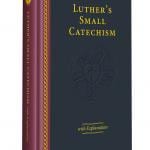As we keep hearing, Millennials don’t affiliate with a church as much as other generations did and tend to be skeptical of religious authorities. Then again, it turns out that Millennials don’t affiliate much with ANY groups or organizations. And they are skeptical of ALL authorities.
But it isn’t just the Millennials, though they get all the attention. The same refusal to affiliate with groups and rejection of authority–manifesting itself in dropping out of the church, as well as many other symptoms–characterizes the white, older, non-college educated working class. Only more so!
Thompson writes,
Millennials and Gen Z are not only unlikely to call themselves Protestants and patriots, but also less likely to call themselves Democrats or Republicans. They seem most comfortable with unaffiliation, even anti-affiliation. They are less likely than preceding generations to identify as “environmentalists,” less likely to be loyal to specific brands, and less likely to trust authorities, or companies, or institutions. Less than one-third of them say they have “a lot of confidence” in unions, or Silicon Valley, or the federal government, or the news, or the justice system. And don’t even get them started on the banks.
What I especially appreciate in this article is that Thompson goes on to show that these same attitudes associated with the Millennials are even more common among the white male working class!
Drawing on a scholarly study entitled The Tenuous Attachments of Working-Class Men, Thompson underscores the point I have long been making on this blog:
First, these low-income working-class men are turning away from organized religion even faster than Millennials and Gen Z. Since the 1970s, church attendance among white men without a college degree has fallen even more than among white college graduates, according to the paper. They remain deeply spiritual without being traditionally devout, avoiding church and preferring instead to browse the internet and libraries for makeshift pieces of a religious self. “They [are] attempting to renegotiate their relationship with religion by picking and choosing elements of various religious traditions they found appealing,” the authors write.
Second, their detachment from religion flows from a feeling that elites have lost their credibility. “Mistrust of religious leaders was often cited as a reason for eschewing a childhood faith,” the authors write, and “some viewed clergy as little more than scam artists.”
Pastors and scholars in the fields of “church leadership” and evangelism, note this well: A major reason why many working-class men, who would otherwise seem to be open to Christianity, is that they distrust religious leaders. (How might religious leaders win back this trust?)
Apparently, what we are seeing is the desire not to be categorized. Thus the plea, “Don’t label me.” For example, this helps explain what we are now seeing in the sexual identity and gender controversies. There are men and there are women. There are men who now identify as women and women who now identify as men. But there are also those who refuse to identify with either sex, who claim a “non-binary gender.” This may not be so much an odd psychological condition as an expression of radical individualism that refuses all labels.
Appreciate too the ironies. Working class, non-degreed white males are Donald Trump’s base, while the college-educated Millennials are the base of the Trump Resistance. The two sides vilify each other. Yet note how much they have in common!
Both sides hate the government, have given up on the nuclear family, pursue extra-marital sex, take recreational drugs, and have stopped going to church.
Thompson, the author of the Atlantic article, correctly shows the “existential” consequences of a society, when its members reject affiliation and refuse to recognize authorities (such as the authority of the government, the law, the family, etc.). Not being a part of a church or religion, he acknowledges, exerts a toll on a person’s sense of meaning. He cites the problems among both Millennials and the working class of loneliness, despair, drug addiction, and suicide.
The article will warm the heart of conservative readers until it suggests that what we are seeing in these two demographics is the herald of something new. The traditions of “family, God, and national pride” have failed us! The breakdown of the allegiance to marriage, religion, and patriotism may be traumatic, but it may be the prelude to the construction of new social institutions that will be better. Thompson concludes, “This stage of history may be recalled as a purgatory, a holding station between two eras: one of ostensibly strong, and quietly vulnerable, traditions that ultimately failed us, and something else, between the unmaking and the remaking.”
Have the traditions failed us? Or have we failed the traditions?
Can you have identity without labels? Can you have thought or even language without categories? Is this repudiation of labels and categories a herald of something better, as the author concludes, or an example of individual, culture, and intellectual breakdown?
by Irshad Manji.













